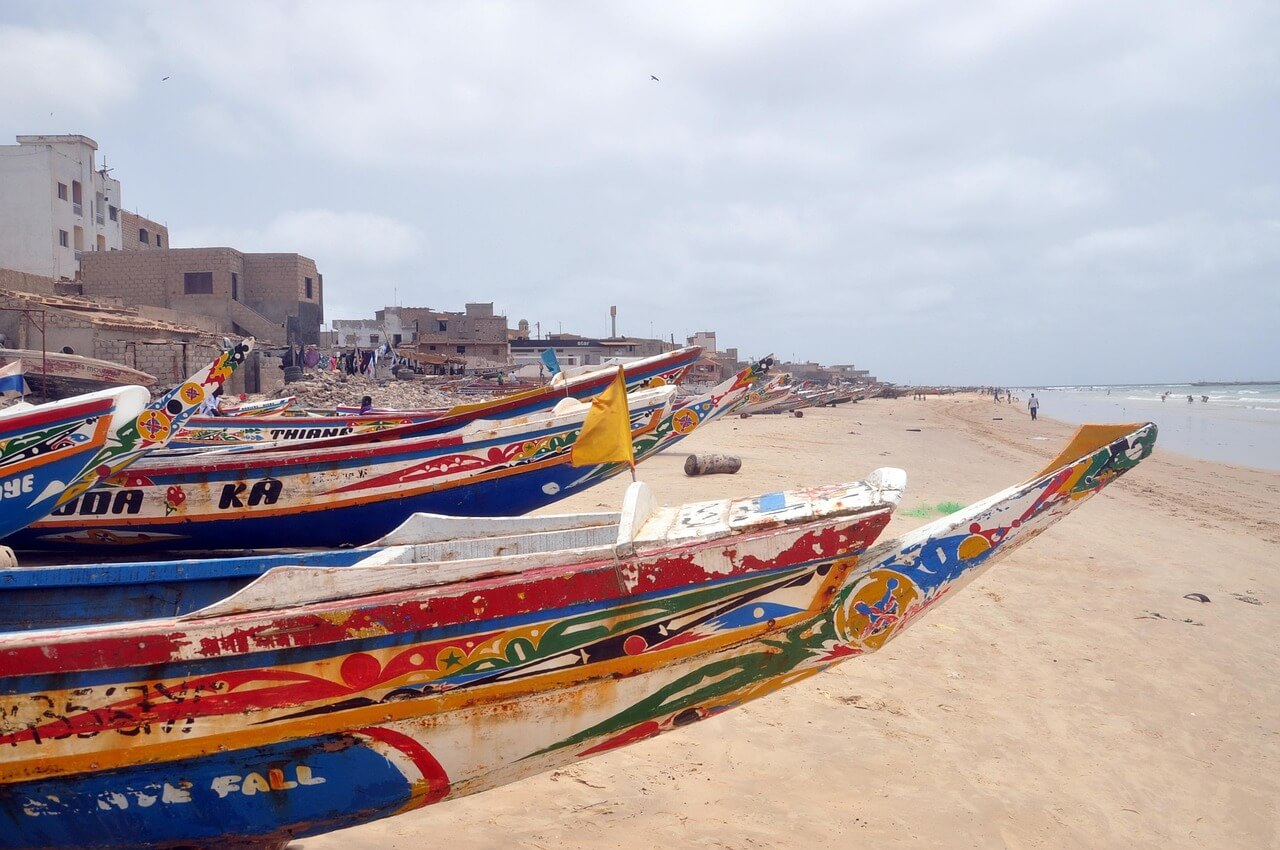Types of attractions in Dakar
Dakar, the vibrant capital of Senegal, offers a rich tapestry of attractions that cater to diverse interests. From its historical significance to stunning natural landscapes, cultural depth, and lively entertainment options, there's something for every traveler.
Historical
Dakar is brimming with historical sites that narrate the tale of its colonial past. Notable mentions include the Maison des Esclaves (House of Slaves) on Gorée Island, a poignant reminder of the transatlantic slave trade, and the towering African Renaissance Monument that embodies the nation’s emergence.
Natural
Nature enthusiasts will love the beautiful landscapes surrounding Dakar. The nearby Pink Lake (Lac Retba) is a stunning natural wonder famous for its distinct pink hue due to algae, while beaches like Ngor and Yoff offer sun-soaked relaxation and water sports.
Religious
The city is home to remarkable religious attractions such as the Grand Mosque of Dakar, which showcases impressive Moroccan architecture. Additionally, the vibrant religious culture can be experienced at Dakar’s lively markets, where spirituality intertwines with daily life.
Cultural
Dakar's vibrant arts scene is a highlight for visitors. The IFAN Museum of African Arts displays stunning collections that celebrate African heritage, while the vibrant markets like Sandaga and Kermel are perfect for immersing yourself in local culture.
Museums
For history buffs, museums like the Museum of Black Civilizations are essential, offering a deep dive into the contributions of African civilizations throughout history.
Entertainment
The bustling nightlife and entertainment scene includes everything from traditional music at local bars to modern nightclubs. Festivals, especially the Dakar Biennale, add to the city's dynamic atmosphere, celebrating art and creativity.
Must-see landmarks in Dakar
The iconic landmarks of Dakar are not just sights; they are the essence of the city’s identity. Each landmark tells a story and showcases the rich culture and history that define Dakar.
- African Renaissance Monument: Standing tall at 49 meters, this monumental statue symbolizes the resilience of the African people and offers breathtaking views of the city.
- Gorée Island: A UNESCO World Heritage site, Gorée is famous for its historical significance as a slave-trading post, adorned with colonial architecture and cobblestone streets.
- Place de l’Indépendance: A central landmark surrounded by palm trees and hotels, serving as a gathering spot reflecting Dakar’s contemporary life.
- Grand Mosque of Dakar: This striking mosque is known for its impressive architecture and is a welcoming point for those interested in the Islamic culture of Senegal.
- IFAN Museum of African Arts: Featuring artifacts that celebrate Senegal’s rich cultural heritage, this museum is a must-visit for anyone interested in the continent’s artistic expression.
- Sandaga Market: A bustling hub of activity, offering a glimpse of local life and culture through its vibrant stalls filled with spices, textiles, and street food.
Attractions for families and kids
Dakar is an ideal destination for families, offering a variety of attractions that keep kids entertained while providing educational experiences. The city’s blend of cultural, natural, and recreational activities ensures that there’s fun for all ages.
- Gorée Island: Take a family-friendly ferry ride to this historical island where kids can explore the old forts and enjoy the beautiful beaches.
- National Parks: The nearby Bandia Wildlife Reserve provides a wonderful chance for children to see Africa’s wildlife up close, including zebras and giraffes, all in a safe and controlled setting.
- Ifan Museum of African Arts: This museum has interactive exhibits that can engage children in learning about African arts and cultures in a fun way.
- Plage de Yoff: Families can relax and swim at this beach while enjoying local food from beachside vendors.
- City Park: A lush green space perfect for picnics and sports, where kids can run around and have fun.
- Les Mamelles Lighthouse: Climbing up the lighthouse is both an adventure and a chance to enjoy panoramic views of Dakar.
Summer and winter attractions
Dakar transforms beautifully with the seasons, offering unique attractions that suit both summer and winter visitors. Each season brings a distinctive charm that highlights different aspects of this vibrant city.
Summer
During summer, the beaches become the focal point. Families flock to Plage de N’Gor for swimming and sunbathing, while water sports like windsurfing are popular at many local spots. The vibrant music festivals around this time, including the Dakar Music Festival, provide entertainment for all ages, showcasing local talents and culture.
Winter
As temperatures cool slightly, exploring historical sites and markets becomes delightful. A visit to Gorée Island offers a more peaceful experience, as fewer tourists visit this time. This season also hosts the Dakar International Art Biennale, bringing art lovers together and highlighting the city’s cultural significance.
Visitor information and tickets
Planning a visit to Dakar is made easier with accessible visitor information. Knowing the key details can ensure a smoother experience when exploring the city’s attractions.
- Opening Hours: Most attractions are open daily from 9 AM to 6 PM, though some may close earlier, especially during the off-peak season.
- Ticket Prices: Expect entry fees for major attractions like the African Renaissance Monument (around 5,000 CFA), while many markets and beaches are free to enter.
- Free Attractions: Take a stroll along coastal views or enjoy the local parks, which often host family-friendly events at no cost.
- Guided Tours: It’s advisable to book guided tours online in advance, especially during peak seasons, to ensure spots at popular sites.
Photography and tourist info centers
Capturing the magic of Dakar through your lens is a must! Many spots in the city are perfect for stunning photographs, and knowing where to find tourist information can enhance your visit.
- Best Photo Spots: The African Renaissance Monument at sunset, the colorful streets of Gorée Island, and the lively markets are all fantastic for photography.
- Photography Rules: Always ask for permission before photographing locals, especially in rural areas, and be respectful at religious sites.
- Tourist Info Center: Tourist Info Center: +221 33 123 4567, located at Avenue Moussa Tavele. Working Hours: 8 AM – 5 PM.






